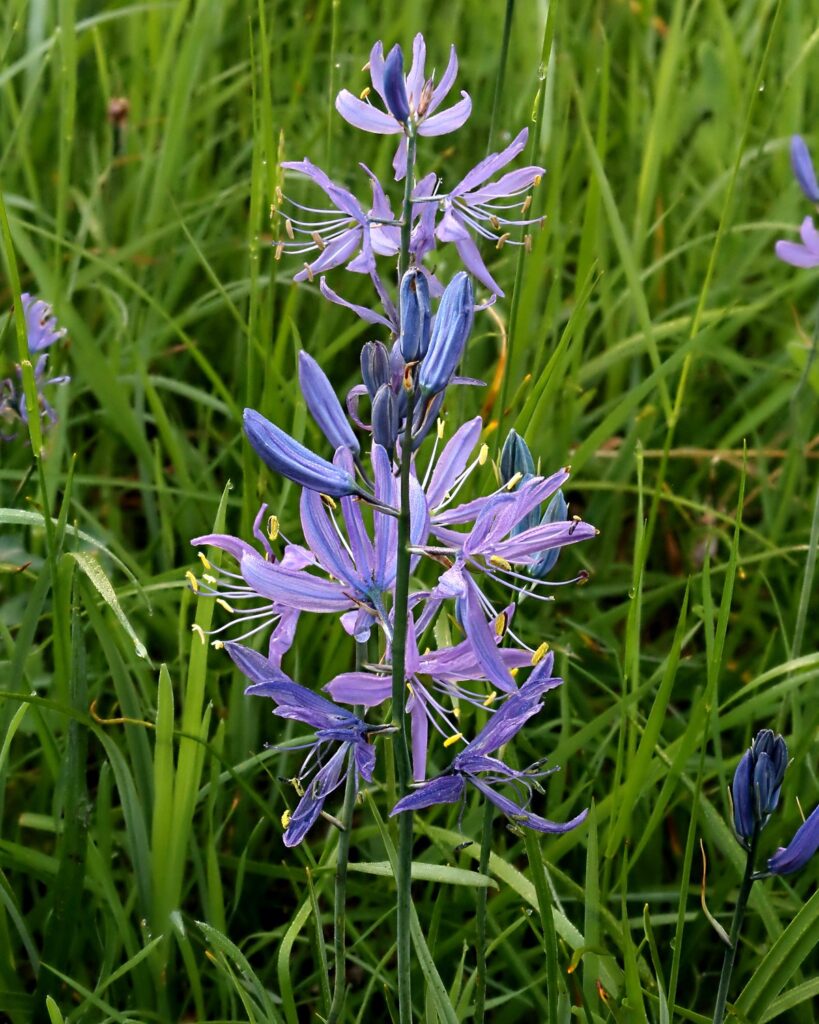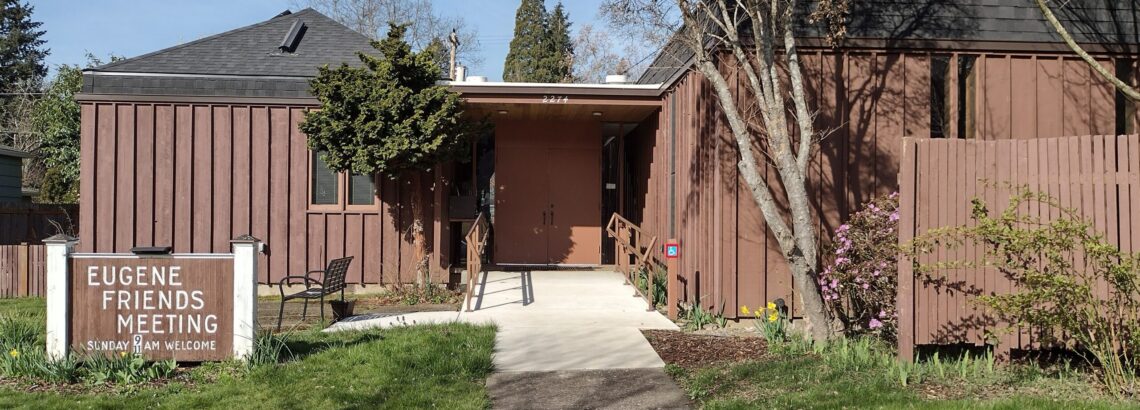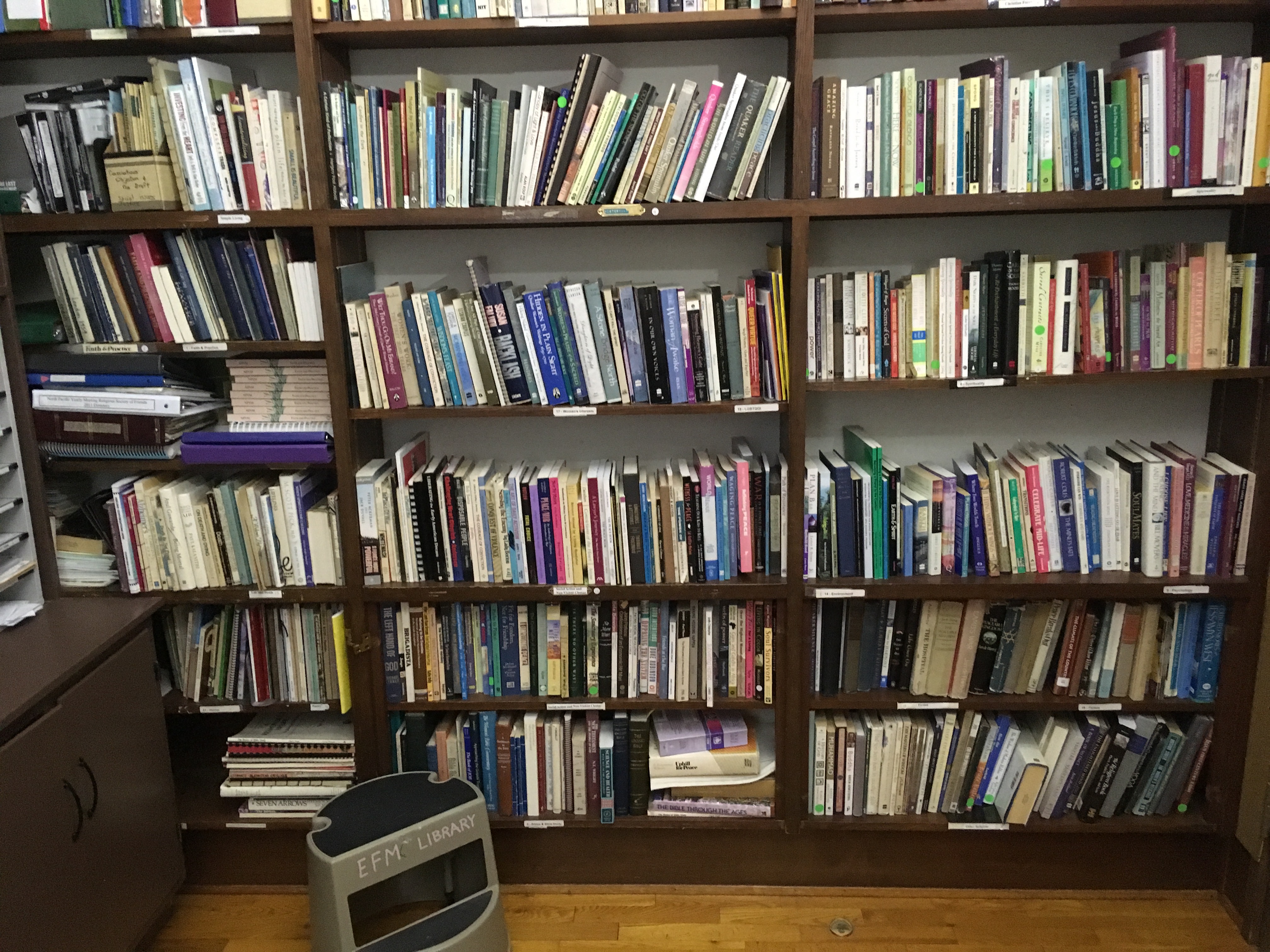
Only when we see that we are part of the totality of the planet, not a superior part with special privileges, can we work effectively to bring about an earth restored to wholeness. Darkness is no less desirable than light. It is rather, a rich source of creativity … First there is the darkness of the earth in which the seeds wait all through the winter. Second, there is the darkness of the womb in which the young mammal grows into sufficient viability to be born and take its place on earth, as a separate being…. And third, there is the darkness of night, when the garish sun has gone down and the things of earth are blotted out, and we may glimpse the vastness of the universe of which we are part. … We say that God is the Inner Light, but I want to affirm also the Inner Darkness, and I do not mean desolation or evil, but a quiet waiting and creativity.
Elizabeth Watson, Minneapolis Meeting, 1996
Seeds need the darkness of winter; they need dormancy before they can germinate. Dormancy is a protective mechanism that prevents seeds from sprouting too early. Some seeds germinate only when triggered by very specific light levels, and some seeds stay dormant for years waiting for the right survival conditions, and only a complete set of favorable environmental conditions will cause them to begin growing.
Late fall (right now) is the best time to plant native wildflower seeds for pollinator gardens, but they can be harder to germinate than other garden seeds. The Institute for Applied Ecology has a download called Growing Native Plants by Seed that explains why:
The first challenge to growing native plants is overcoming seed dormancy. While the seeds of most garden vegetables require light, moisture, and warm soils to germinate, those conditions are not sufficient to grow native plants. Seeds from native plants need to be exposed to a cold, wet winter in order to germinate. This cold wet period is called “stratification”. Many of Oregon’s native plants have evolved to germinate in the spring, and the passing of four, cold, wet months is one cue used to tell them that spring has arrived. If the plants germinated in the fall, they could easily freeze and die over the winter.
We practice stratification when we sink into the stillness of waiting worship. Waiting is an act of patience, an openness to what may come. Powerful things happen in the stillness.
Give over thine own willing, give over thy own running, give over thine own desiring to know or be anything and sink down to the seed which God sows in the heart, and let that grow in thee and be in thee and breathe in thee and act in thee; and thou shalt find by sweet experience that the Lord knows that and loves and owns that, and will lead it to the inheritance of Life, which is its portion.
Isaac Pennington, 1661
Queries:
What dormant seeds are sown in your heart? How can you create the most favorable growing conditions?
Are you able to embrace the Inner Darkness as a place of “quiet waiting and creativity”? What is your experience of “sinking down to the seed”?



